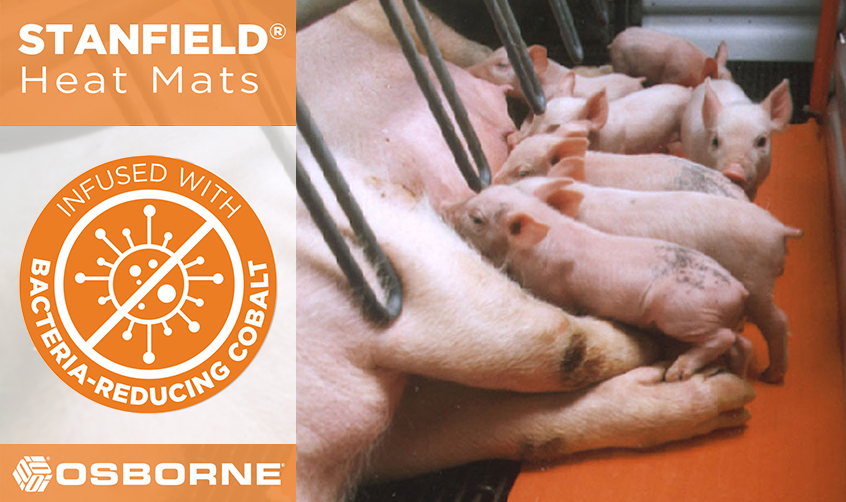



EU proposes welfare improvements for pigs
The European Commission has adopted a report on intensive pig farming and a proposal amending EU legislation on the protection of pigs to improve welfare conditions. The proposal prohibits the confinement of pigs during most of their pregnancy to individual stalls which severely restrict their freedom of movement. It also sets out rules to improve the living environment of pigs and piglets in general, setting requirements for living spaces, floor surfaces, and proper feeding systems.
 Sows floor feeding in straw pen |
David Byrne, Commissioner for Health and Consumer Protection said. "The intensification of pig farming over the past ten years has led to practices which cause unnecessary suffering and are also increasingly proving to be counterproductive. I take the advice of our scientists on this very seriously and will do the utmost to ensure that the legislation is brought in line. Once these new measures are in place, I believe the pig meat industry will have a chance to significantly improve its public image. Animal welfare issues are an integral part of the future EU farming policy. We want to be moving towards a farming system that combines efficient rearing with rearing methods that are acceptable to the vast majority of the public.
Today's Commission proposal for a Council Directive is based on a 1997 opinion on the welfare of intensively kept pigs of it's the EU Scientific Committee on Animal Health and Animal Welfare. The scientists highlighted the need to take action to improve conditions in intensive pig farming. The main findings of the SCAHAW scientists on the welfare problems arising from intensive pig farming systems are:
- keeping pigs, and in particular sows, in social isolation and in individual stalls impedes social interaction and natural behaviour such as rooting;
- artificial floors and slatted floors cause injury, discomfort and impede normal rooting behaviour;
- certain feeding systems used may cause aggressive behaviour of the animals, notably in cases where dry sows are underfed and kept hungry throughout most of their lives;
- incompetent personnel is a cause of suffering for animals even in good housing systems.
 Tethered Sows - Already Banned in UK |
- a ban on individual stalls for sows during pregnancy up to 7 days before farrowing;
- a ban on tethering of sows and gilts;
- an obligatory minimum size of sow pens, allowing at least for turning around;
- obligatory permanent access for pigs to rooting materials and fibre food;
- detailed floor surface requirements with separate dunging and resting/feeding areas;
Five (UK, Netherlands, Denmark, Finland, Sweden) Member States already have put in place more restrictive national legislation than foreseen in the 1991 Community legislation. These are in particular measures to ban individual stalls for pregnant sows and to provide proper surroundings facilitating natural behaviour and social interaction.
The EU pig population added up to 125 million heads in 1998; 12.6 million of those are breeding sows, mainly concentrated in Germany, Spain, France, the Netherlands and Denmark. Production of pig meat has become a highly specialised industry geared to fattening animals according to pre-established standards with strict delivery deadlines. At present in the EU almost 65% of pregnant sows are restrained in individual stalls and more than 60% are kept on in spaces without straw.
The Commission proposal for a Council Directive as adopted today amends the existing Council Directive 91/630 laying down minimum standards for the protection of pigs. It goes to the Council of Ministers for adoption. The European Parliament will be consulted but has no co-decision making powers on this matter since the legal basis of the proposal is Article 37 - Common Agricultural Policy.








